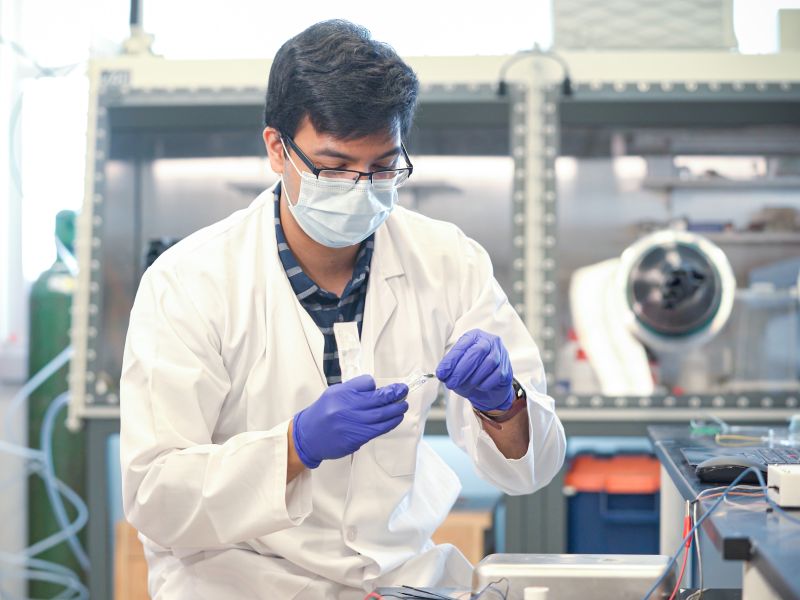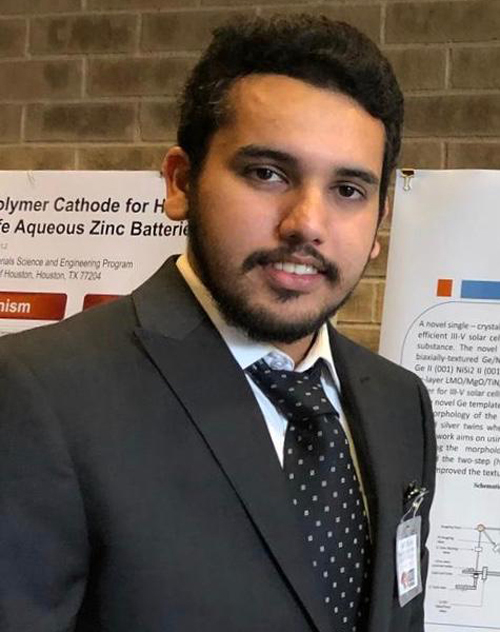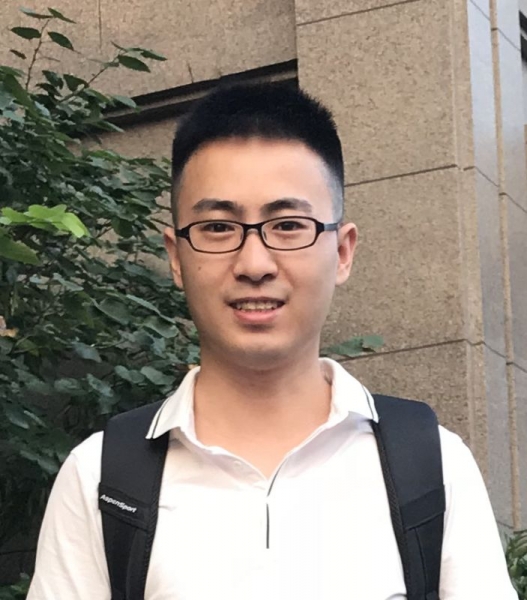Three graduate students from the Cullen College of Engineering have received scholarships from the Texas Center for Superconductivity at the University of Houston (TcSUH), as recognition for their work inside and outside of the classroom.
All three students received Cora Hawley Scholarships. According to the TcSUH, she established the scholarships to further the careers of exceptional students aligned with TcSUH research programs. The recipients for the 2021-22 academic year are:
- Faheem Ershad joined the Ph.D. program in biomedical engineering in 2018 after completing a B.S. in biomedical engineering with a minor in nanoengineering. In recognition of his undergraduate excellence, Faheem received the prestigious NSF Graduate Research Fellowship. His advisor is Cunjiang Yu, Bill D. Cook Associate Professor of Mechanical Engineering. Ershad has been investigating drawn-on-skin electronics for motion artifact-less sensing and point-of-care treatment in one of his research projects. He has published 13 papers, with two in Nature Electronics, one in Nature Communications, and three in Science Advances.
- Sahil Sharma, a Ph.D. student in materials engineering, joined the group of Venkat Selvamanickam, M.D. Anderson Chair Professor of Mechanical Engineering, in Fall 2018 after completing his M.S. degree. His project is on flexible, inexpensive, high-efficiency gallium arsenide solar cells. Fabrication and testing of flexible gallium arsenide solar cells is a complex process that requires utmost care to ensure high-quality devices. Sharma learned and implemented the device fabrication process in a short time to demonstrate high-efficiency devices.
- Libo Wu began his doctorate studies in the Materials Science and Engineering program in September 2018 with his own financial support. After the first semester of core courses in Materials Science, he became interested in Physics Department M.D. Anderson Chair Professor Zhifeng Ren’s research project on water splitting through electrolysis, with joint advisor Alamgir Karim, the Director of the Materials Engineering Program. His research training began with searching for new and improved catalysts for freshwater splitting to generate hydrogen as an extremely high energy carrier. Through hard and persistent work, Wu quickly mastered the experimental skills and techniques on water splitting and discovered a few outstanding catalysts together with his senior lab peers. His initial efforts have led to seven outstanding papers in Energy & Environmental Science, ACS Energy Letters, Research, Journal of Materials Chemistry A, Advanced Functional Materials, Nano Energy and Applied Catalysis B: Environmental. Of seven publications, he is the lead author on five.
Scholarship recipients are selected from undergraduate or graduate students in research programs aligned with the Center, with selection based on the student’s academic and research accomplishments. While a high GPA is an essential factor, the committee considers the number of internal and external oral presentations, prizes and awards, number of papers, and other outstanding service or contributions.
TcSUH is the largest multidisciplinary university-based superconductivity and advanced materials research center in the United States, with more than 240 faculty, postdoctoral fellows, graduate and undergraduate students, and visiting scientists. The Center¹s personnel create and develop high temperature superconducting and advanced materials, further their understanding and develop commercial applications. For more information, visit https://tcsuh.com.


